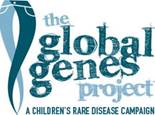February 24th, 2010 by DaveMunger in Better Health Network, Expert Interviews, True Stories
No Comments »

“I like your watch,” pharmacist Jin Jun tells me as I’m sitting down to interview him.
I have a plastic runner’s watch, nothing special, but I see Jun is wearing something similar. “Do you run?” I ask him.
Jun is a tall, personable man who runs marathons, it turns out, and he enthusiastically invites me to run in a 5K race this weekend. I’m not sure I’ll be able to make it but I ask him for the details anyway.
Jun is equally passionate about his job, which one day a week involves helping the patients at the Carolinas Medical Center Infectious Disease Clinic with HIV drug adherence. I ask him how he handles cases like LaShana Walker’s, where some days she just doesn’t feel like taking her medications because they make her so nauseous. Read more »
*This blog post was originally published at The Daily Monthly*
February 22nd, 2010 by Dr. Val Jones in Patient Interviews
No Comments »
 In honor of World Rare Disease day and the Global Genes Project, I’d like to repost a fascinating interview with a young man who has hemophilia…
In honor of World Rare Disease day and the Global Genes Project, I’d like to repost a fascinating interview with a young man who has hemophilia…
Hemophilia A is a blood clotting disorder sometimes referred to as the “disease of kings” since it is a genetically inherited (X-linked) bleeding disorder that was introduced by Queen Victoria to the Russian royal family in the mid 1800’s. Women are carriers of the gene, while males express the signs of the disease, so only the “kings” display the trait.
Today there are fewer than 18,000 individuals with hemophilia A in the United States. Those with the most severe form of the disease make less than 1% of the regular amount of a certain blood clotting glycoprotein (known as factor VIII) and are often dependent on the regular intravenous administration of this expensive factor to keep them from bleeding to death. The cost of factor VIII and associated medical care and hospitalizations is estimated at $150,000/year.
How do people with hemophilia A manage to get their medical needs met in our current healthcare system? I spoke with a young man with hemophilia A (we’ll call him “J”) to find out.
Read more »
February 20th, 2010 by KevinMD in Better Health Network, Opinion
1 Comment »

Most medical schools do a reasonably good job clinically preparing medical students to be future physicians.
But they can do better, especially in our fragmented health system where millions of Americans have to contend with costs as much as they have to with their medical conditions.
In her recent New York Times column, Pauline Chen cites a study showing that students exposed to more non-clinical topics, like medical economics, health policy, and the “business” of medicine, were more satisfied with their education. Read more »
*This blog post was originally published at KevinMD.com*
February 17th, 2010 by EvanFalchukJD in Better Health Network, Health Policy, Opinion
No Comments »

“I’m from Massachusetts,” I told the audience. “So depending on how you feel about reform, I will say either ’sorry,’ or ‘you’re welcome.”
 The audience, made up of large employers and benefits professionals seemed to like this. But it was clear that they were pleased that the health care reform legislation is Congress is pretty well dead now.
The audience, made up of large employers and benefits professionals seemed to like this. But it was clear that they were pleased that the health care reform legislation is Congress is pretty well dead now.
Now, if it’s true that health care costs are rising (they are) and this heavily impacts employers (it does) why would the death of a bill meant to address this problem make those people happy?
I’ve written before that part of the problem with the reform bills in Congress is the huge divide between what benefits professionals know about the real world of health care and the things that get “policy wonks” excited. And so a big reason why these bills never really had widespread support among professional benefits people was because they never made a whole lot of sense to them. Read more »
*This blog post was originally published at See First Blog*
February 16th, 2010 by DaveMunger in Better Health Network, Health Policy, Opinion
No Comments »

 Last November, the National Football League devoted the entire month to breast cancer awareness. Players like Reggie Bush wore pink gloves, armbands, even shoes, to promote efforts to fight the disease.
Last November, the National Football League devoted the entire month to breast cancer awareness. Players like Reggie Bush wore pink gloves, armbands, even shoes, to promote efforts to fight the disease.
There were some heartwarming moments. Players brought their mothers, grandmothers, and other women who’d battled breast cancer to the games, all of them wearing attractive pink game-day jerseys. Announcers told their own stories of “courageous” battles against the disease waged by friends and family members.
It’s powerful and inspiring, these overpaid hulks of manhood showing they’re secure enough in their masculinity to don feminine-ish garb to support their sisters and mothers.
But try to imagine the NFL — or any sports league — launching a similar campaign to fight HIV and AIDS. Which player would trot out a brother, sister, or father who’s HIV positive? Which television announcer would proudly point to the afflicted and speak of their “inspirational” battle with HIV?
In an NPR interview last week, Theresa Skipper talked about why she concealed her HIV diagnosis for 19 years: Read more »
*This blog post was originally published at The Daily Monthly*







 Last November, the National Football League devoted the
Last November, the National Football League devoted the 









